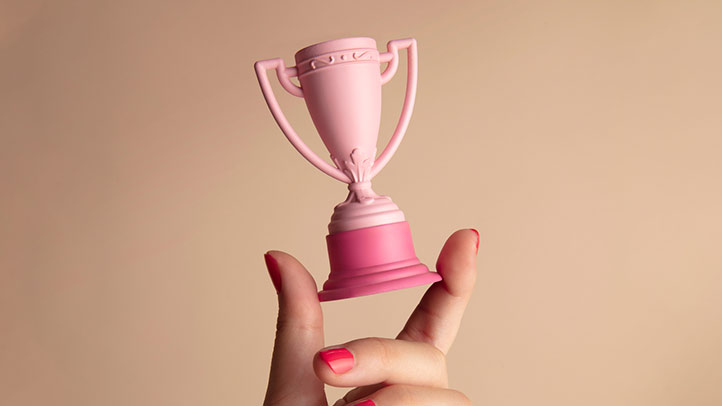You're ready to ditch the diapers, but your toddler may be hesitant to leave them behind. That's only understandable. After all, your tot has been wearing diapers his entire life — now, he's supposed to use the potty (and recognize when he has to use the potty, and make it to the potty…) on command.
So it only makes sense that some toddlers resist toilet training even when they're physically ready. Luckily, M&Ms aren't your only option for incentivising your tot to use the toilet (although they can certainly work). Here are some more ideas to try.
Should you offer potty training rewards?
There's nothing wrong with offering your child a small reward once he's ready to start potty training.
"You're helping reinforce a positive behavior with something that is more tangible than just thanking the toddler," says Alexandra Cvijanovich, M.D., a spokesperson for the American Academy of Pediatrics. "You may also be speeding up the [potty training] process by rewarding it."
It's true that, for some parents, rewarding a trip to the bathroom sounds a lot like bribery. But there can be a difference between the two. Whereas a "reward" is a prize for a job well done, a "bribe" implies the parent will do something in return for a child's behavior.
Plus, "Bribes frequently reinforce negative behavior, such as stopping a tantrum with a piece of candy," says Dr. Cvijanovich. "A reward is simply a reward."
Of course, not all children need a reward when they're ready to potty train, says Francyne Zeltser, PsyD, a child psychologist and clinical director at Manhattan Psychology Group.
A child who's motivated to use the potty — say, one who's uncomfortable in a dirty diaper, curious about the toilet, or wants to wear underwear like an older sibling — may not need any rewards as the act of successfully using the potty is rewarding in of itself, she says. And that's okay, too.
Potty training reward ideas
You don't always have to reward your child with tangible items such as snacks. Zeltser recommends starting with intangible ones, like your attention or approval. If that doesn't work, you could introduce physical incentives, like food or small toys.
Attention rewards
The good part about offering your child praise is that it's always readily available (and there's no sugar added). Some things to try include:
- Praise (like "Great job using the potty!")
- High fives
- First bumps
- Hugs
- A silly song or dance
- Storytime
It helps to make your praise specific: Say, "I'm so proud of you for peeing on the potty!" or "Let's read a story now to celebrate you using the potty." This helps your toddler associate the positive attention more closely with using the potty.
Food rewards
If your child needs a little more incentive to use the potty, you can try offering him a small snack or treat. Just be consistent about what rewards he gets, when, Zeltser says.
And if he wants another treat? Hold firm, and remind him that he can have another treat the next time he uses the potty. Here are a few foods to try:
- Mini M&Ms
- Mini marshmallows
- Mini chocolate chips
- Whole-wheat pretzels
- Fruit slices
- Crackers
- Cereal pieces
Fun rewards
You could also offer small toys or outings as a reward. (Big-ticket items can add up quickly!) Some ideas to try include:
- Stickers
- Hand stamps
- Small toys
- Art supplies
- Books
- Blocks
- A trip to the library, park or museum
How to use potty training rewards
Offer the reward as soon as your child uses the potty — not, say, at the end of the week. "If you think of how a toddler perceives time, a week is an eternity," says Dr. Cvijanovich.
If you're using a potty training chart — and offering a toy or other fun treat after he goes to the bathroom, say, five or ten times, for example — give out a sticker or stamp right away so there's an immediate reward, or a sign of an accomplishment.
If your child is particularly anxious about potty training, you could try giving them an "over-the-hump" gift early on, Zeltser says. That way, every time your child feels nervous about using the bathroom, you can encourage them by saying, "You were able to do it ... Remember you earned your toy dinosaur; you can do it again!"
How to phase out potty training rewards
As your child gets better at potty training (and yes, it will happen!), start to offer the reward for every two or three times he uses the toilet, keeping track of his progress on a potty-training chart. Then, offer the reward for every five or six times he uses the toilet, and so on.
Over time, even the most appealing of potty-training rewards will start to lose their attraction.
"As the child gains more independence and confidence, toileting becomes more like a routine," Zeltser says. "Children look less towards their parents and rewards to reinforce the act of using the bathroom."


 Trending On What to Expect
Trending On What to Expect






